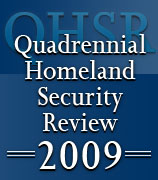
Quick Links
News Releases
August 19, 2009
Chinese national pleads guilty plea in illegal honey import scheme
Country of origin concealed to avoid tariffs; one shipment tainted with banned chemical
SEATTLE - A 20-year employee of a bee products company in China pleaded guilty today in federal court to conspiracy charges stemming from his role in a scheme uncovered by U.S. Immigration and Customs Enforcement (ICE) to illegally import nearly two million dollars worth of Chinese honey into the United States.
Boa Zhong Zhang, a Chinese national, pleaded guilty today to charges of entering goods through false statements, smuggling goods into the United States and introduction of adulterated food into interstate commerce. Zhang was arrested by ICE agents May 6 in Los Angeles while traveling in the United States. He and Chung Po Liu of Bellevue, Wash., were indicted by a grand jury June 4.
According to the plea agreement, the president of Changge Jixiang Bee Products Limited asked Zhang to set up a scheme to transship honey from China through the Philippines and on to the United States. Zhang subsequently hired a company in the Subic Bay Freeport Zone to unload the honey at a warehouse, re-label it as a "Product of the Philippines" and ship it to the United States.
In April 2005, Zhang oversaw the first transshipment of Chinese honey. A few months later, he met with co-defendant Liu, who owned two U.S. companies involved in honey imports and sales.
Following the meeting and at Liu's request, Zhang arranged for 21 shipments of Chinese honey, which was valued at $1.6 million. Shipments were routed through either the Philippines or Thailand.
Because the honey was not labeled as coming from China on the customs import documents, Liu avoided paying anti-dumping tariffs totaling approximately $3.3 million. The tariff rate on Chinese honey was 183 percent starting in 2001 and increased to 221 percent in 2007.
In addition to avoiding the tariffs, one of the honey shipments that arrived in January 2008 was contaminated with the antibiotic ciproflaxin. This antibiotic is banned from the U.S. food supply and is often found in Chinese honey.
"Submission of false customs documentation in order to avoid paying tariffs defrauds not only the U.S. government, but consumers who are unaware of the scheme and unwittingly purchases the products," said Leigh Winchell, special agent in charge of ICE's Office of Investigations in Seattle. "ICE will continue to aggressively investigate these crimes in order to deter this illegal activity."
Zhang faces up to five years in prison and a $250,000 fine when he is sentenced on November 30. Liu's trial is scheduled for April 5, 2010, and he is charged with conspiracy to enter goods in the United States through false statements and to smuggle goods into the United States.
In addition to the charges filed in the Western District of Washington, Yong Xiang Yan, the president of the Chinese honey manufacturing company is charged in Chicago with conspiring to import falsely labeled honey into the United States for a Chicago-based honey distributor. According to the charging documents, the honey's country of origin was falsified, and some Chinese honey has been found to be contaminated with three different antibiotics.
ICE was joined in this investigation by the Port of Seattle Police Department, the Food and Drug Administration Office of Criminal Investigations and the ICE attaché offices in Bangkok, Hong Kong and Manila.
-- ICE --


